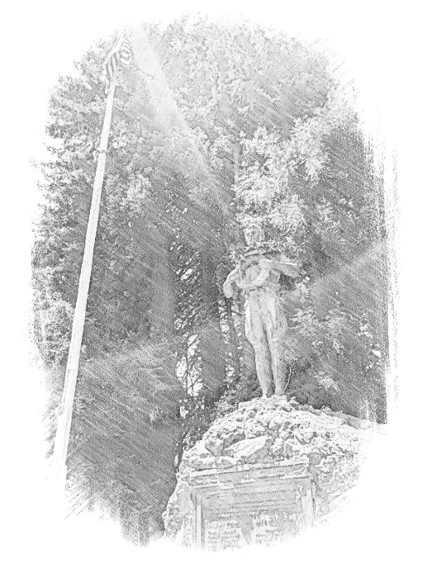 The Doughboy Statue, M. Earl Cummings, 1930.
The Doughboy Statue, M. Earl Cummings, 1930. The Doughboy Statue, M. Earl Cummings, 1930.
The Doughboy Statue, M. Earl Cummings, 1930.
To celebrate this gorgeous Independence Day Weekend weather, I did my default running route, which takes me through Golden Gate Park. And when I passed the Grove of Memory (a.k.a. Doughboy Meadow), some vague patriotism deep within drew me over to the statue that honors the dead of the two world wars.
I removed my running hat and stayed for a quiet moment.
And it occurred to me that whilst the founding of our great country was the result of remarkable fortune, it wasn’t a “one and done” situation; that America had to be won (and earned) again and again, including through the wars that her sons and daughters had to fight and give their lives to. And it had to be won not just militarily, but politically and socially and economically.
Everyone knows the Star Spangled Banner, but who wouldn’t be hard-pressed to recite anything beyond the first verse? Yet the fourth and final stanza grabs me:
O thus be it ever when freemen shall stand
Between their lov’d home and the war’s desolation!
Blest with vict’ry and peace may the heav’n rescued land
Praise the power that hath made and preserv’d us a nation!
Then conquer we must, when our cause it is just,
And this be our motto – “In God is our trust,”
And the star-spangled banner in triumph shall wave
O’er the land of the free and the home of the brave.
Probably most notable for giving us our In God We Trust motto, but the “heav’n rescued land” and “preserv’d us a nation” are particularly striking: this young nation requires not only our blood but also Providence.
In this way, I’m reminded of Founding Brothers, because one prominent theme and key takeaway is that the long-term prosperity of United States was not a foregone conclusion. Even though we look back and see this straight line from the colonial era to the revolutionary war and through to the founding of the country; there were sundry opinions and disagreement on every matter of any consequence, and, frankly, it was sort of touch and go for a while there with several issues having the potential to undo the entire American project (e.g., the slavery debate, Federalism vs. Republicanism).
Which then makes me think of our republic today: that even though we’re almost 250 years into this political experiment—which we now take for granted and expect continued success (Newton’s First Law of Motion)—when you look around the globe and through democracy’s relatively short history, the whole thing is incredibly fragile.
We ought to be grateful for what we’ve got in these United States and not take her for granted, and wisely anticipate the forces that potentially threaten her endurance.
Happy Fourth,
— ᴘ. ᴍ. ʙ.